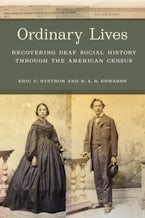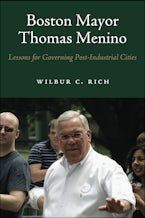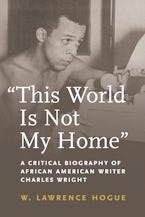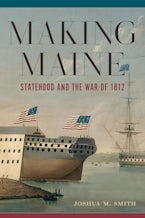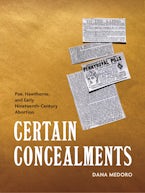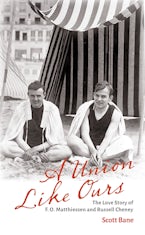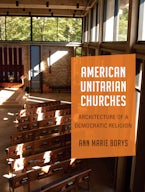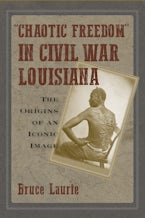- Home
- In Pursuit of Justice
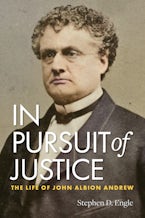
In Pursuit of Justice
The Life of John Albion Andrew
Published by: University of Massachusetts Press
544 Pages, 6.00 x 9.00 x 1.70 in, 8 illus.
Other Retailers:
Widely known as the “poor man’s lawyer” in antebellum Boston, John Albion Andrew (1818–1867) was involved in nearly every cause and case that advanced social and racial justice in Boston in the years preceding the Civil War. Inspired by the legacies of John Quincy Adams and Ralph Waldo Emerson, and mentored by Charles Sumner, Andrew devoted himself to the battle for equality. By day, he fought to protect those condemned to the death penalty, women seeking divorce, and fugitives ensnared by the Fugitive Slave Law. By night, he coordinated logistics and funding for the Underground Railroad as it ferried enslaved African Americans northward.
In this revealing and accessible biography, Stephen D. Engle traces Andrew’s life and legacy, giving this important, but largely forgotten, figure his due. Rising to national prominence during the Civil War years as the governor of Massachusetts, Andrew raised the African American regiment known as the Glorious 54th and rallied thousands of soldiers to the Union cause. Upon his sudden death in 1867, a correspondent for Harper’s Weekly wrote, “Not since the news came of Abraham Lincoln’s death were so many hearts truly smitten.”
List of Illustrations
Preface
Acknowledgments
Chapter 1
Windham Origins: 1818–1833
Chapter 2
The Bowdoin College Years: 1834–1837
Chapter 3
The Poor Man’s Lawyer: 1837–1845
Chapter 4
The Emerging Politician: 1846–1849
Chapter 5
On the Right Side of God: 1850–1854
Chapter 6
The Republican Tide: 1855–1856
Chapter 7
The Radical Champion: 1857–1858
Chapter 8
Republican Star Rising: 1858–1859
Chapter 9
The Governorship: 1860
Chapter 10
Man for the Hour: January–April 1861
Chapter 11
“A Grand Era Has Dawned”: April–May 1861
Chapter 12
Communities at War: June–September 1861
Chapter 13
The Politics of Command: October–November 1861
Chapter 14
The Lord Is Marching On: November 1861–January 1862
Chapter 15
The Changing War: January–July 1862
Chapter 16
Emancipation: July–November 1862
Chapter 17
Slaves No More: December 1862–May 1863
Chapter 18
Opening Eyes of North and South: May–December 1863
Chapter 19
The Promise of a New Year: January–June 1864
Chapter 20
This Justice: July–December 1864
Chapter 21
Thirteenth Amendment: January–June 1865
Chapter 22
Last Months in the Statehouse: July–December 1865
Chapter 23
Working for the Ages: January–April 1866
Chapter 24
Postwar Yankee: May 1866–May 1867
Epilogue
Children Will Call You Blessed: April 1866–October 1897
Notes
Bibliography
Index
STEPHEN D. ENGLE is professor of history at Florida Atlantic University. He is the author of numerous books, including Gathering to Save a Nation: Lincoln and the Union’s War Governors, which was the recipient of the Barondess/Lincoln Award.
“John Albion Andrew is a little-known American hero. He led with courage and principle in pursuit of equality. In this new biography, Stephen D. Engle has given us a thoroughly engaging portrait of the man, his times, and his leadership.”—Deval L. Patrick, professor of the practice of public leadership and co-director of the Center for Public Leadership, Harvard Kennedy School
“John Andrew is one of the unsung heroes of the Civil War, and Stephen D. Engle has captured this Massachusetts governor in his complexity and his passion for justice in such a perilous time. Engle brings tremendous research to this gracefully written re-creation of a life that had been waiting for its biographer. Engle tells a remarkable story of the uses of power—for a lawyer and especially a governor—to protect fugitives, free the enslaved, and build a more equal society. One hopes for a broad readership; Andrew was the real article—a genuinely abolitionist white state leader who walked the walk of Black emancipation.”—David W. Blight, Sterling Professor of History at Yale University and author of the Pulitzer Prize–winning Frederick Douglass: Prophet of Freedom
“This moving biography of John Albion Andrew demonstrates the power of passionate crusaders to reshape society, including the most intransigent forces of racial injustice. Engle traces Andrew’s career from its roots in Christian faith and a liberal education through the courtroom, Republican politics, the Massachusetts governorship, and the searing crises of Civil War and Reconstruction.”—Nancy Hewitt, author of Radical Friend: Amy Kirby Post and Her Activist Worlds, winner of the 2018 James Bradford Best Biography Prize, Society for Historians of the Early American Republic
“Stephen D. Engle’s biography of John A. Andrew closes a glaring gap in the literature on mid-nineteenth-century U.S. history. As governor of Massachusetts throughout the Civil War, Andrew pushed tirelessly for emancipation, the enrollment of Black men in U.S. military service, and applying relentless pressure against the Confederacy. This book superbly assesses Andrew’s life and career, while also reminding us that state leaders played a central role in waging a war to save and improve the republic.”—Gary W. Gallagher, author of The Union War and John L. Nau III Professor of History Emeritus, University of Virginia
“Stephen D. Engle reintroduces us to one of the nineteenth century’s leading political reformers, abolitionists, and citizens. John Andrew deserves to be more widely known, and this book is the kind of biography he deserves. Through the story of Andrew’s life, Engle illuminates the contentious and exhilarating era in which Andrew played such a pivotal role.”—Robert Allison, author of The American Revolution: A Very Short Introduction
“In an engagingly written book, Stephen D. Engle traces Andrew’s trajectory from young idealistic student and abolitionist lawyer to his career as Lincoln’s most effective ally among the Civil War governors. A first-class biography, Engle’s book is also a comprehensive history of the one of the most consequential governorships in American history. It will be read by many; it will be essential reading for those working in the political history of the Civil War.”—John L. Brooke, author of “There Is a North”: Fugitive Slaves, Political Crisis, and Cultural Transformation in the Coming of the Civil War
“It staggers the imagination…that Engle’s comprehensive, copiously researched, (his footnotes and bibliography run a whopping 117 pages) and sturdily written life-and-times biography of Andrew is the first in over a century to bring to life a truly remarkable American hero.”—Emerging Civil War

